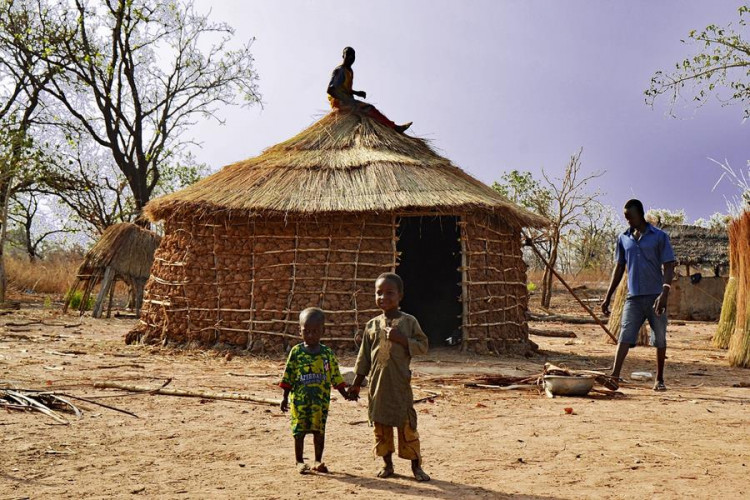On Thursday, a massive explosion in Ghana's remote Western Region leveled hundreds of buildings and killed an unknown number of individuals after a truck transporting explosives to a gold mine collided with a motorcycle.
Local media outlets broadcast images of a massive plume of black smoke rising over wrecked buildings and strewn rubble as residents pleaded for assistance. Graphic videos revealed victims' bodies being mutilated. Additionally, a big crater can be observed alongside a road.
Apiate, a small village in western Ghana, appears to have been completely destroyed by the bomb. According to CNN, Kwadwo Bempah, who works in the region and heard the explosion, practically every building fell, trapping humans and animals beneath the wreckage.
Although the precise number of victims has not been confirmed officially, Isaac Dsamani, president of the Prestea Huni-Valley municipal government where the incident occurred, told local media that officials had so far tallied "approximately 17 dead bodies."
Seji Saji Amedonu, the National Disaster Management Organization's deputy director general, stated 500 structures had been destroyed. According to a regional emergency official, he saw 10 dead bodies.
President Nana Akufo-Addo of Ghana stated the military had joined emergency operations to "contain the situation," and the country's disaster management agency had been entrusted with providing "quick relief" to citizens.
Bempah stated that in the immediate aftermath of the catastrophe, the local community acted as first responders, rescuing people and animals from collapsed debris and transporting the injured to hospitals before ambulances arrived.
Police pleaded with neighboring communities to make classrooms and churches available to surviving victims.
According to Kwabena Owusu-Ampratwum, the company's publicity officer, the explosives were being transferred to a nearby mine operated by Chirano Gold Mines.
Akufo-Addo described the incident as a "really dreadful, unfortunate, and heartbreaking tragedy," noting that it resulted in "the loss of lives and the devastation of property."
The enormity of the blast's devastation and casualties has sent shockwaves throughout Ghana.
Ghana has recently had a series of gas disasters, with one of the biggest killing more than 150 people in the capital Accra in 2015. The detonation erupted as hundreds of citizens sought refuge at a nearby gas station from the torrential rains.
Police noted that reinforcements had been dispatched to the scene, while urging for calm.
Last October, local media claimed that at least one person was killed and another was injured in a gas-related explosion in Accra.
Three persons died in another fire in Ghana's Ashanti region the same month.






